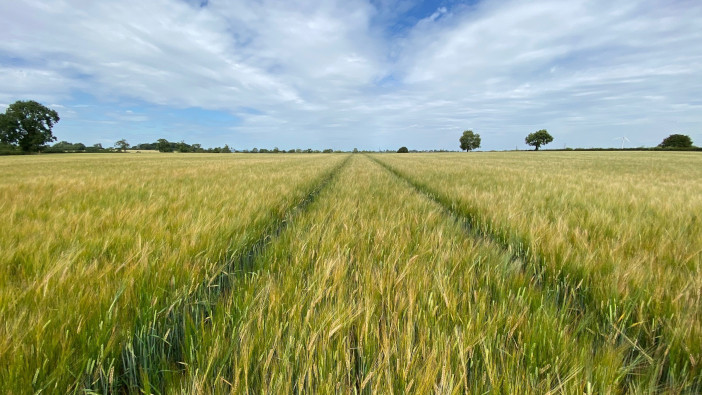With favourable conditions, the spring cropping area in 2023 is likely to be down on previous years, however, it remains an important option for many growers in the north – especially in areas where maize and spring barley is grown for animal feed.
CAS arable agronomist Archie Boase, part of Hutchinsons, notes that there will still be a reasonable area of spring crops, meaning that growers should plan varieties and secure seed early.
Forage maize
Forage maize is a key spring crop in the Northwest, and early maturing varieties are the go-to option given the usually tight window for getting maize harvested in the autumn, Mr Boase explained.
“This year has been the exception. Maize harvest was generally earlier due to crops reaching maturity sooner, with yields varying anywhere from 35-60 t/ha, depending on soil type and nutrient input.”
Growers should generally look to earlier varieties with an FAO rating of 160-190, again soil type dependent, he advised.

“Favourable varieties include Pioneer P7326 and P7034. P7034 is preferred due to the ability to feed it almost straight out of the clamp due to its high dent starch content, allowing it to break down quicker in the rumen.
“Prospect and Ability also do well, scoring high on the NIAB/ BSPB descriptive list for dry matter yield, with Prospect topping the early variety dry matter yield. Perez is also a good all-rounder, particularly in the extra early slot.”
Spring barley
Spring barley is the main spring combinable crop, with the focus generally more on grain and straw yield, rather than hitting the specification required for malting or brewing markets.
Varieties must therefore have decent yield potential and straw height, resistance to lodging and good disease resistance, particularly to Rhynchosporium and, to a lesser degree, mildew.
“Ramularia is also important, but there are no RL ratings for that, so control is more about preventative action throughout the season by reducing stress and choosing the correct fungicide, rather than varietal choice.”
Typically, Laureate, RGT Planet and LG Diablo have dominated the spring barley options for many growers, and are likely to be popular choices again next spring.
“That being said, Malvern looks promising, with good yields in the West and a decent lodging rating.
“Laureate and LG Diablo are pretty good for Rhynchosporium [rated 7 and 6 respectively], whereas Malvern is only rated 3, so it is something we need to watch. Despite Malvern’s low score for Rhynchosporium, with a 105 for yield in the West, it looks very promising, especially against some older varieties.”
Mr Boase noted that spring barleys generally fared well in 2022, despite the lack of rainfall, typically averaging 5.5-7 t/ha, similar to many spring wheats.
“Crops on heavier ground performed better, which I put down to better water holding capacity throughout the dry spells. There was a lot of variation in yields in cereals this year, which was mainly down to soil type and growers reducing fertiliser inputs, particularly nitrogen and potassium, due to the higher prices.”
Spring wheat
Although not widely grown in the Northwest, spring wheat can be a useful option to “fill in” where winter wheat drilling could not be completed, Mr Boase said.
Again, the focus is primarily on yield for crops going into animal feed, rather than chasing protein for milling, and it is the Group 2s, KWS Cochise and KWS Chilham, that have performed well locally in recent years, he says.
Both offer better yield potential than the Group 1, Mulika, which has been around for 11 years, and disease-wise, they are relatively strong against Septoria, mildew and rust, although KWS Cochise is only rated 4 for yellow rust, which must be managed appropriately, he notes.
“Mulika has definitely got a place though, especially as there could be a bit of patching up to do in some late-sown Group 1 wheats given how wet the weather turned later this autumn.”


